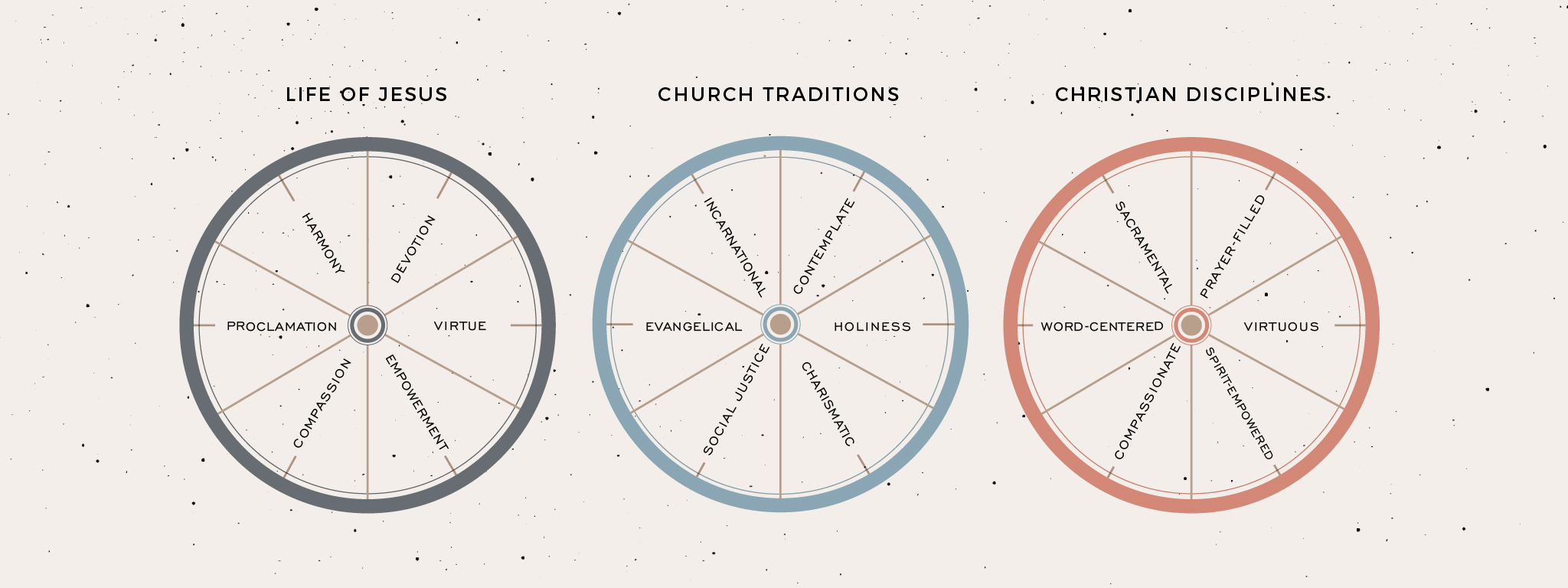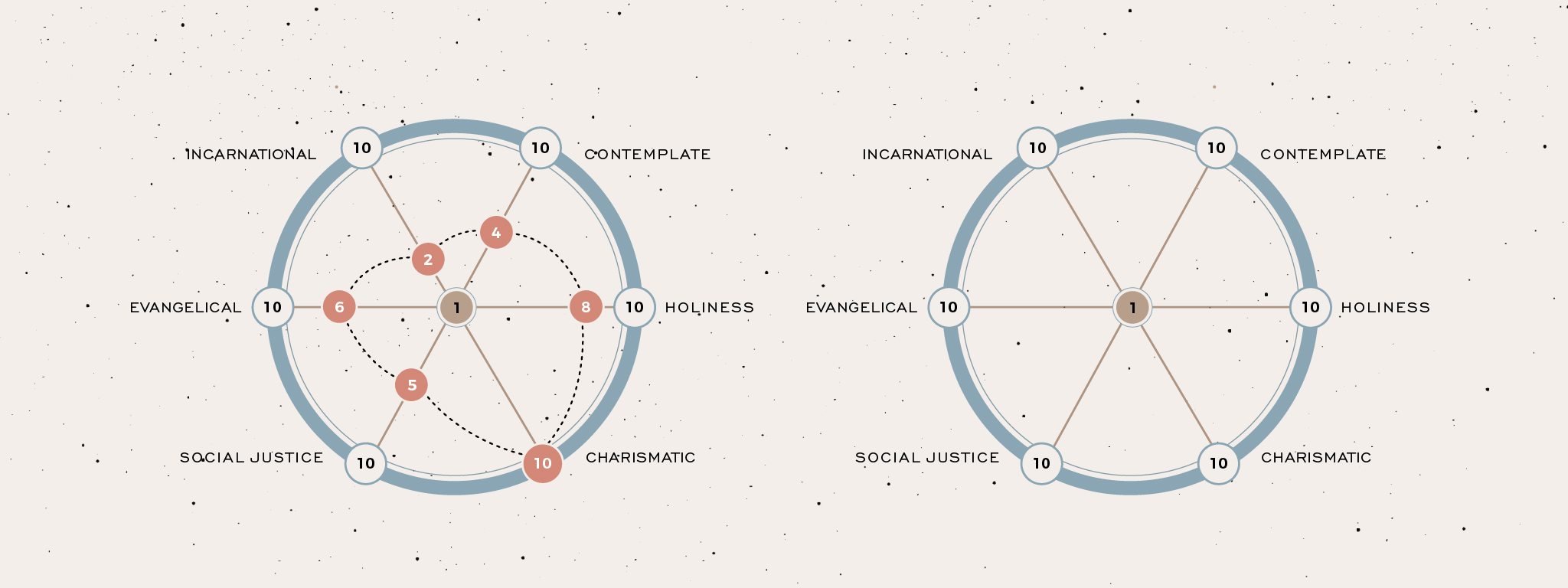“… He handed out gifts of apostle, prophet, evangelist, and pastor-teacher to train Christians in skilled servant work, working within Christ’s body, the church, until we’re all moving rhythmically and easily with each other, efficient and graceful in response to God’s Son, fully mature adults, fully developed within and without, fully alive like Christ. No prolonged infancies among us, please. We’ll not tolerate babes in the woods, small children who are an easy mark for impostors. God wants us to grow up, to know the whole truth and tell it in love—like Christ in everything. We take our lead from Christ, who is the source of everything we do.” (Ephesians 4:11-15 MSG)
In his letter to the Ephesians, Paul is telling us to grow up.
All of us.
As Christians, we are sometimes marked by weakness, ignorance, lack of discipline and are driven by hunger (our flesh and desires). We often can’t handle process, pain, patience or discipline.
How do we know that we’re still infants in the Lord?
Do you still believe that if you get the right person or the right things, you’ll be satisfied? Do sins still bring you pleasure than deep grief? (Perhaps you’re regrettable, but not repentant).
Do you still believe you can do all things by yourself? Or do you believe helping others is a waste of time and money?
Is the gospel still small, and not worth sharing? Do you find that you compartmentalize your faith?
Or, do we try to skate by with our talents, not building our character with disciplines and power?
We are like babies, and we need to grow up.
God wants us to grow up. (Eph. 4:15)
We need to get rid of our training wheels.
Alain De Botton writes, “To have made any progress will mean looking back on who we were last year with a degree of embarrassment.” Are you able to look back and think, “How could I have thought I needed God any less?” “How could I have not been deeply grieved by my apparent sin?”
So how do we begin to mature?
Nancy Duarte writes in her book, Illuminate, that any kind of growth starts with a leap, an attempt. And as you leap and make attempts, that’s how skills are attained. It takes courage, determination, and discipline. And eventually, you’ll achieve a new level of maturity of skill after many tries.

For example, Pastor Bryan recounts that he used to have difficulty hearing God and praying in the Spirit. So his leader pushed him to pray 2-3 hours a day in tongues. Through the discipline of following his mentor’s direction, he had to be okay with being a novice. He had to keep attempting and trusting that as he practiced, God would teach Pastor Bryan to listen for His voice.
If you find that you have become comfortable, it’s time to take a leap again. We must try to go deeper, longer, higher and take a leap of faith by trying it again on a new, sometimes scarier levels.
What is God inviting you into?
Now, you’re getting ready to jump, but what are you supposed to attempt?
“The single most obvious trait of those who profess Christ but do not grow into Christlikeness is their refusal to take the reasonable and time-tested measures for spiritual growth.”
— Dallas Willard
Our calling in life is to become like Christ.
That means we are invited to attempt, attain, and achieve disciplines that shape us into Christlikeness. We can learn the time-tested habits and disciplines as seen from the Wheel of Faith adapted from the Spiritual Formation Workbook by Smith & Graybeal.

These are disciplines modeled after the life of Christ: Devotion to God, Virtue in thought, word and action, Empowerment by the Spirit, Compassion toward all people, the Proclamation of the good news, and Harmony between faith and work.
Now, these six spokes of Jesus’ life gave way for six respective traditions in the church: The Contemplate, The Holiness, The Charismatic, The Social Justice, The Evangelical, and The Incarnational Traditions.

“The history of the Church has been marked by movements, a word used to describe how God’s Spirit has moved upon (God’s people) with a particular mission. Usually, such a movement emphasized one of the six areas… often called the Six Traditions…” (Smith & Graybeal).

These traditions are expressed as disciplines in our lives.
The Contemplate Tradition is expressed as a Prayer-filled Life. In the 4th Century, men and women fled city life and found cloisters and monasteries where they emphasized the importance of solitude, meditation, and prayer. This is a discipline focuses on our intimacy with God, allows us to abide in loving fellowship with Him and draws us into daily attention with God.
If you want to grow in this area of your life, try spending 10-minutes in your quiet time with God conversing with Him and listening for His voice. You can also look out for Selah Advance offered in the Fall at EKKO every year.
The Holiness Tradition focuses on the need for Christians to overcome sinful habits. In the early 18th Century, The Wesleyans developed the Methodist movement and the church once again took sin seriously. This is expressed through a Virtuous Life.
Do you want to grow in virtue? Meet with your Red Pen holders and get into the habit of confession and repentance and having editors in your life.
The Charismatic Tradition came from the new outbreak of the Holy Spirit during the 17th century in the lives of men and women called the Quakers. The Holy Spirit had an active role and propelled them into evangelism, missions, and social concern. This is an example of the Spirit-Empowered Life, where we have a desire and the discipline of allowing the Spirit to work in and through us.
Do you want to practice listening and responding to the Spirit? Start by coming and praying with our Intercessors before service every Sunday. (Email Pastor Isaac at Isaac@ekkochurch.com), pray with those serving on the first Sunday of each month at Pre-Service Kavannah, or get in the habit of praying with us as a body during Abide Sunday.
The Social Justice Tradition was started by St. Francis of Assisi in the late 12th century when he and a group of his followers abandoned their former lives to go about the Italian countryside caring for the sick, poor, and lame. Countless men and women followed his lead. This is an example of the social justice movement and a Compassionate Life.
You can grow in this area of your life by signing up to be a Safe Family through our Mary and Joseph Initiative or by becoming a rEcess volunteer.
The Evangelical Tradition was sparked by Martin Luther in the 16th century. He and others proclaimed the gospel of Jesus Christ after discovering its message freshly in the Bible. They shared the message of hope and victory through sermons, mission, efforts and personal witnessing. This is a Word-centered Life that is expressed by the desire and discipline of sharing the good news to others in word and deed.
Want to grow in this area? Read the ESV Study Bible or “Nudge” by Leonard Sweet.
The Incarnational Tradition started with Nikolaus Ludwig von Zinzendorf when he allowed those of the persecuted Moravian Church to build a village on his estate. They experienced a powerful outpouring of the Holy Spirit after Zinzendorf led them in daily Bible studies. The Moravians learned to joyfully serve God in the midst of baking, teaching, weaving and raising families. This is an example of the Incarnational movement and is shown in our lives when God manifests Himself in His creation. A Sacramental Life is one marked by serving God, praying, and evangelizing to others, even in the midst of mundane activities.
Grow in the Incarnational Tradition by asking God how to serve Him in your day-to-day. Allow Him to speak to you and ask Him to help you view your work, study, and relationships through His eyes. You can also read from Pastor Bryan’s blog about work, The Grind, here. Or check out these resources from the Theology of Work.
Look at the wheel again, and see your own strengths and emphases as a Christian. How uneven are your spokes?
What are the disciplines you need to grow in?

On the left, you can see Pastor Bryan’s wheel. What do you need to practice more of to balance out your wheel so you can ride smoothly?
“We should not only want to be merciful, kind, unassuming, and patient persons, we are also to make plans to become so.”
— Dallas Willard
In order for us to grow, to become disciplined, to mature… we have to plan.
Have you planned and promised to serve at rEcess or provide a home for Safe Families? Make time in your calendar. Have you planned out your finances in order to tithe and be financially disciplined and mature enough to upkeep this house? Make plans to budget. Has your Ekklesia planned to offer time or volunteer on outreaches? Plan to be there and show up.
Make time to attend, practice, with the Church and by yourself.
Every healthy strong wheel has a hub, and the spokes are rooted in the same one.
At the center is Jesus Christ Himself.

When we go deeper into our lives, at the heart of our hearts… at the root of our motivations and drive, there should be only one thing at the center: Jesus.
At the Hereford Cathedral in England, the architect wanted to show this in a grand and illustrious way. When you walk into the cathedral, you find at the heart of it is a large crown suspended from the ceiling.


At the center of this beautiful cathedral is the Crown of Thorns. He is at our center, at the altar, at the center of our hearts.
The artist says that at first glance, the crown looks like a royal crown, but when you look closely, it’s also the crown of thorns.
There was a cost for Jesus, but for the joy set before Him, He endured the cross.
Our focus has to be Jesus Christ, our King. He must become the center of our lives,
towering above all things,
filling up every corner of our lives.

Pray this with us this week:
Heavenly Father, show me the ways I am stunted,
the areas where I need to grow.
Holy Spirit, help me to go beyond this desire to grow
and give me the power to exercise the disciplines.
Jesus, be in the center,
I will take my lead from You.
I commit today to plan,
for You are the hub of everything I do.
I will find You in the center of my being.
for I want to be more like You.
You can listen to the sermon Training Wheels No Mo from the Ephesians series that inspired this post here.
All images and materials are copyright protected and are the property of EKKO Church unless otherwise noted and credited to their maker. Please do not copy or distribute without permission.
